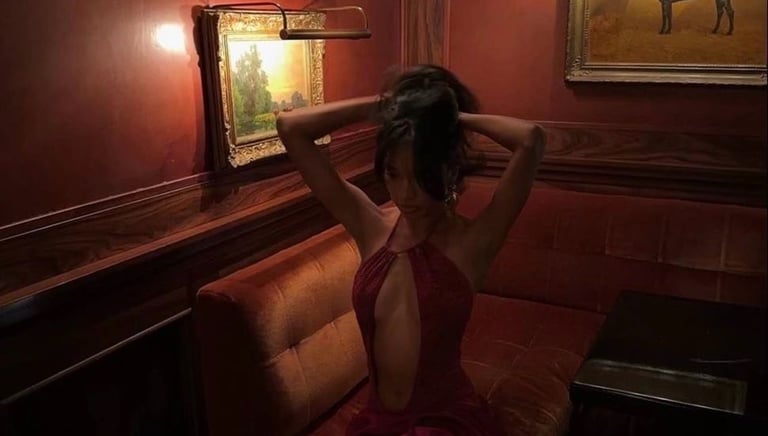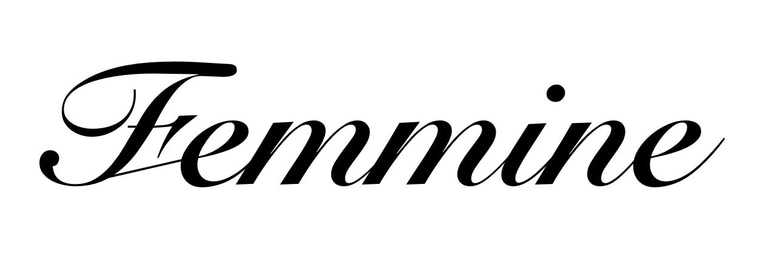The Duality of The Dark Feminine
By Amelia Berns
LIFESTYLEHOME
Edited by Charlotte W
10/19/20253 min read


Smoky eyes, cherry-red nails, black lace — search “Dark Feminine” on Pinterest or TikTok and you’ll find hundreds of posts showing you how to nail the aesthetic.
From curated mood boards to moody clips with sultry soundtracks, the visual language is everywhere — sensuality laced with power, part femme fatale, part witch.
But while the look is striking, there’s far more to the Dark Feminine than a smoky eye and a fitted dress. Behind the dark lipstick lies a philosophy: self-possession, boundaries, unapologetic desire. Social media often reduces it to a “how-to” — tutorials on how to walk, dress, and behave in a certain way. In truth, the Dark Feminine is about something deeper: embracing complexity, duality, and the parts of womanhood society has long painted as dangerous.
The term itself refers to an archetype — an energy that carries the shadow side of femininity: power, sensuality, independence. Drawn from Jungian psychology’s idea of the shadow and inspired by figures like Lilith or Persephone, it has recently resurfaced in modern spirituality as a way of reclaiming what’s been suppressed, and celebrating the full spectrum of feminine expression.
Scroll your feed and you’ll see the focus land heavily on appearances. Step-by-step guides, e-books, endless tips on how to seduce or manipulate, usually dressed up as “taking back your power”. The problem? It reduces strength to surface-level tricks. When you look back at where the Dark Feminine comes from, that couldn’t be further from the truth.
It’s a paradox: an archetype meant to represent freedom ends up commodified into trends and toxic strategies. But truly embracing your “dark” side is about inner work, not a performance. It’s not about proving something outwardly, but being at ease with yourself inwardly — connecting with what you really believe, instead of burying it.
Because here’s the thing: it’s not about control, it’s about connection.
Stepping into the Dark Feminine isn’t about playing a part or following rules. It’s about reclaiming your power — just not in the way TikTok might suggest.
Look back at the myths and goddesses who refused to fit neatly into a box: Lilith, who left Eden rather than submit. Persephone, both life and death, innocence and sovereignty. Kali, destroyer and creator in one. They remind us that femininity has never been only soft, obedient, or decorative — it has always been layered, contradictory, and powerful.
And these aren’t just old stories. They resurface in today’s icons: Maleficent, Euphoria’s Maddy, FKA Twigs, Lana Del Rey. Pop culture keeps reinventing the Dark Feminine because we crave that complexity — women who are tender and ruthless, glamorous and raw, all at once.
And now, we’re watching young women reclaim it for themselves. Even when society prefers them agreeable and uncomplicated, the Dark Feminine gives us the language for the opposite: saying “no” without an apology, setting boundaries without guilt, embracing desire without shame. In a world that rewards women for shrinking, she is the part of us that expands.
Accessing her energy isn’t about putting on a performance or memorising steps. It’s subtle. It’s personal.
You embody the Dark Feminine when you write honestly about what you’ve been told not to feel. When you say no — and leave it at that. When you dress purely for yourself. When you allow anger, joy, sadness, and pleasure to live together without shame. Sometimes it’s as simple as painting your nails red because it feels good — not because it signals something to anyone else.
And let’s be clear: if you just love the style, the lace, the red lipstick, that’s valid too. Aesthetics are part of it. But if you’re searching for the deeper side — for your Dark Feminine — it means looking at the whole, not just the surface.
Because her duality is the point: she’s visible and invisible. She might be a smoky eye, yes, but she’s also the quiet confidence behind it. She isn’t about manipulation — she’s about wholeness. And embracing her means refusing to cut yourself down into what feels acceptable. It means stepping fully into the magic of being complex, contradictory, and unapologetically free.
For more, explore fashion, travel, and lifestyle insights here.
Subscribe to our newsletter!
info@femmine.co.uk
